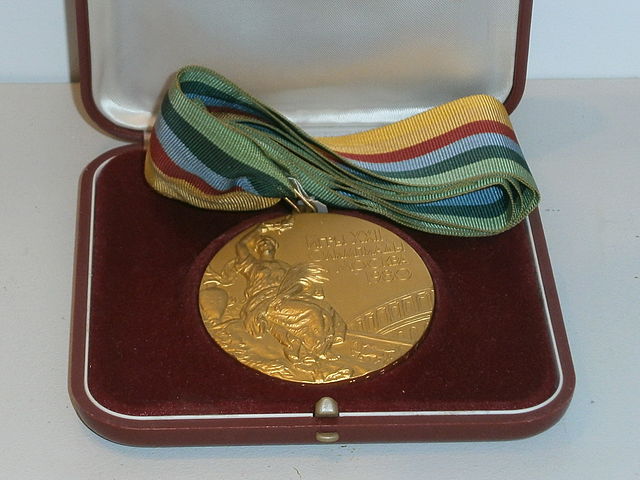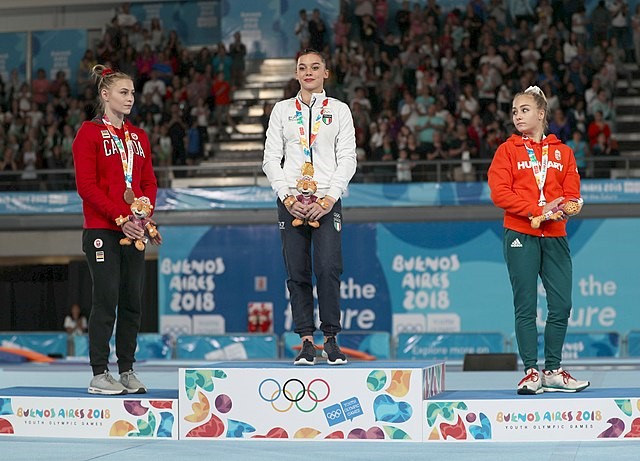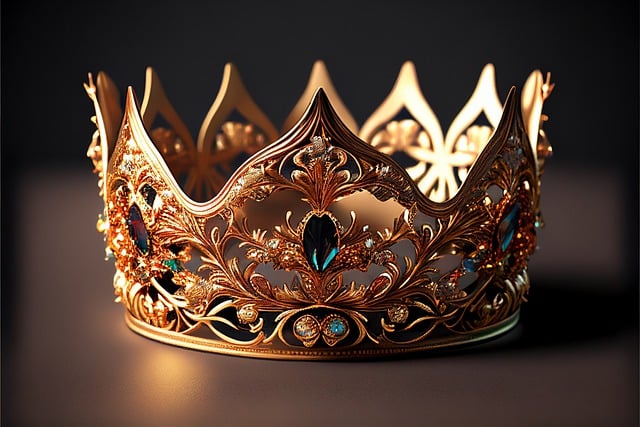
What Are Spoils?
If a victor receives them, spoils must have a positive connotation. And, unlike spoiled milk, they do have one. “Spoils” consist of the goods or advantages obtained because of a person’s actions or situation.
Winning the US presidential election offers the advantage of residence in the White House. Winning a gymnastic competition at the Summer Olympics garnered Simone Biles an individual Olympic gold medal. So, spoils can be either intangible, such as the right to live in a designated place, or tangible, such medals bestowed upon Olympic athletes standing on a podium.
The Ancient Olympics – A Crown, No Medals
The first Olympic Games took place almost 3,000 years ago in ancient Greece, with the town of Olympia serving as the venue for the event. Although the site of a major religious sanctuary, Olympia was nowhere near Mount Olympus in northern Greece where the twelve major deities of the ancient Greek religion were said to live.
Olympia’s athletic competitions were the oldest and largest of the four Panhellenic Games held in ancient Greece. Only the winners at each of these games received an award, not any runners-up. The victor’s much-coveted award? A crown made of leaves intertwined to form a circle or horseshoe.

Other Perks For Ancient Winners
While a tangible prize was awarded to the victor of the ancient events, the real spoils for the winner were intangible. They received glory, fame, and a record in history. Winners were recognized and treated with honor during their lives. But even after death, the Greeks did not forget them. Statues erected in their honor, lists of winners, and even victory odes written about the winners perpetuated their memory.
Medals At The Modern Olympics
The modern Olympics began in 1896 in Athens, Greece. First, second, and third place winners at that event received a medal, but no gold medal existed yet. The medals awarded included silver for the winner, copper for the second-place competitor, and bronze for the third-place competitor. The 1904 Olympics held in St. Louis was the first time gold, silver, and bronze medals were awarded. Those medals remain the traditional medals still given today.
The International Olympic Committee (“IOC”) provides rules to standardize the medals awarded at the Olympics. These rules call for the three top competitors to receive medals. An event’s winner receives a gold medal since that metal is the rarest between gold, silver, and bronze. The medal’s shape should typically be circular with an attachment for adding a chain or ribbon. The IOC also sets requirements for the minimum size for each medal as well as for its composition. Today a gold medal must contain at least six grams of pure gold, usually found on the medal’s plating.

Awarding Olympic Medals
Medals are bestowed upon the Olympic winners publicly during a medal ceremony at the conclusion of the event. The three recipients stand on a three-tiered rostrum with the winner being in the middle on the highest tier. An IOC member presents a medal to each athlete on the rostrum. The national flag of each medalist is raised, and the national anthem of the gold-medalist’s country is played.
The Prize For Christians – Heavenly Crowns
While not athletic, Christians take part in the race of life. They don’t compete against others, but they do battle themselves and the circumstances in which they find themselves. And pressing on in this race, according to the apostle Paul, results in the prize for which God calls believers to heaven.
Unlike in the Olympics, a believer’s reward for finishing the race of life isn’t limited to one of three medals. The New Testament mentions five heavenly crowns to be awarded. These crowns include the imperishable crown (1 Cor.9:24-25), the crown of rejoicing (1 Thessalonians 2:19) the crown of righteousness (2 Timothy 4:8), the crown of glory (1 Peter 5:4), and the crown of life (Revelation 2:10). The Greek word for “crown” calls to mind the wreath of leaves placed on a victor’s head for winning an ancient Olympic event.

What’s The Difference?
Although both Olympic medals and heavenly crowns are an honor, significant differences exist between the two. Only three competitors can win a medal in any Olympic event. God, however, offers every believer the opportunity to receive rewards in heaven for finishing their earthly faith race. And He does not limit the number of prizes He will distribute. In the ancient Olympics, a crown made of wild olive leaves looked great, but only for a time. They would eventually die. Modern Olympic medals can become tarnished, lost, or stolen. God’s heavenly crowns for believers are eternal.
Olympic Medals Or Heavenly Crowns?
Receiving an Olympic medal is a huge accomplishment and honor. But even the gold medal pales in comparison to the value of a heavenly crown from God. While most believers will never compete as an Olympic athlete, all are able to press for the prize God has for them at the end of their earthly race. His rewards are not limited to a handful, and they are eternal. Which spoils would you rather have, Olympic medals or heavenly crowns?

















